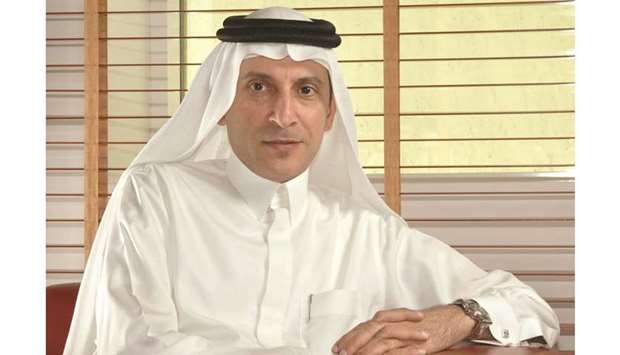Qatar Airways has no issue recruiting pilots or cabin crew and his airline is inundated with job applications, Group Chief Executive HE Akbar al-Baker said but warned labour shortages will be a big challenge in the coming months.
Speaking to reporters on the sidelines of the 78th IATA AGM and World Air transport Summit in Doha yesterday al-Baker revealed that Qatar’s national airline received some 20,000 applications when it sought 900 additional pilots to meet its growth plan. And at the airline's 'open day' for cabin crew in one particular city, some 25,000 turned up.
"People got into a bad habit of working from home," al-Baker said.
"They feel they don't need go to an industry that really needs hands-on people," he said, adding shortages in airport staff could restrict the post-crisis growth of airlines.
According to an IATA report, direct employment in the airline sector is expected to reach 2.7mn, up 4.3% on 2021 as the industry rebuilds from the significant decline in activity in 2020. Employment is still, however, somewhat below the 2.93mn jobs in 2019 and is expected to remain below this level for some time.
Unit labour costs are expected to be 12.2 cents/available tonne kilometre (ATK) in 2022, which is essentially back to 2019 levels when it was 12.3 cents/ATK.
The time required to recruit, train, complete security/background checks, and perform other necessary processes before staff are “job-ready” is presenting a challenge for the industry in 2022. In some cases, employment delays may act as a constraint on an airline’s ability to meet passenger demand.
In countries where the economic recovery from the pandemic has been swift and the unemployment rate is low, tight labour markets and skill shortages are likely to contribute to upward pressure on wages.
The industry’s wage bill is expected to reach $173bn in 2022, up 7.9% on 2021, and disproportionate to the 4.3% increase in total jobs.
Speaking to reporters on the sidelines of the 78th IATA AGM and World Air transport Summit in Doha yesterday al-Baker revealed that Qatar’s national airline received some 20,000 applications when it sought 900 additional pilots to meet its growth plan. And at the airline's 'open day' for cabin crew in one particular city, some 25,000 turned up.
"People got into a bad habit of working from home," al-Baker said.
"They feel they don't need go to an industry that really needs hands-on people," he said, adding shortages in airport staff could restrict the post-crisis growth of airlines.
According to an IATA report, direct employment in the airline sector is expected to reach 2.7mn, up 4.3% on 2021 as the industry rebuilds from the significant decline in activity in 2020. Employment is still, however, somewhat below the 2.93mn jobs in 2019 and is expected to remain below this level for some time.
Unit labour costs are expected to be 12.2 cents/available tonne kilometre (ATK) in 2022, which is essentially back to 2019 levels when it was 12.3 cents/ATK.
The time required to recruit, train, complete security/background checks, and perform other necessary processes before staff are “job-ready” is presenting a challenge for the industry in 2022. In some cases, employment delays may act as a constraint on an airline’s ability to meet passenger demand.
In countries where the economic recovery from the pandemic has been swift and the unemployment rate is low, tight labour markets and skill shortages are likely to contribute to upward pressure on wages.
The industry’s wage bill is expected to reach $173bn in 2022, up 7.9% on 2021, and disproportionate to the 4.3% increase in total jobs.


